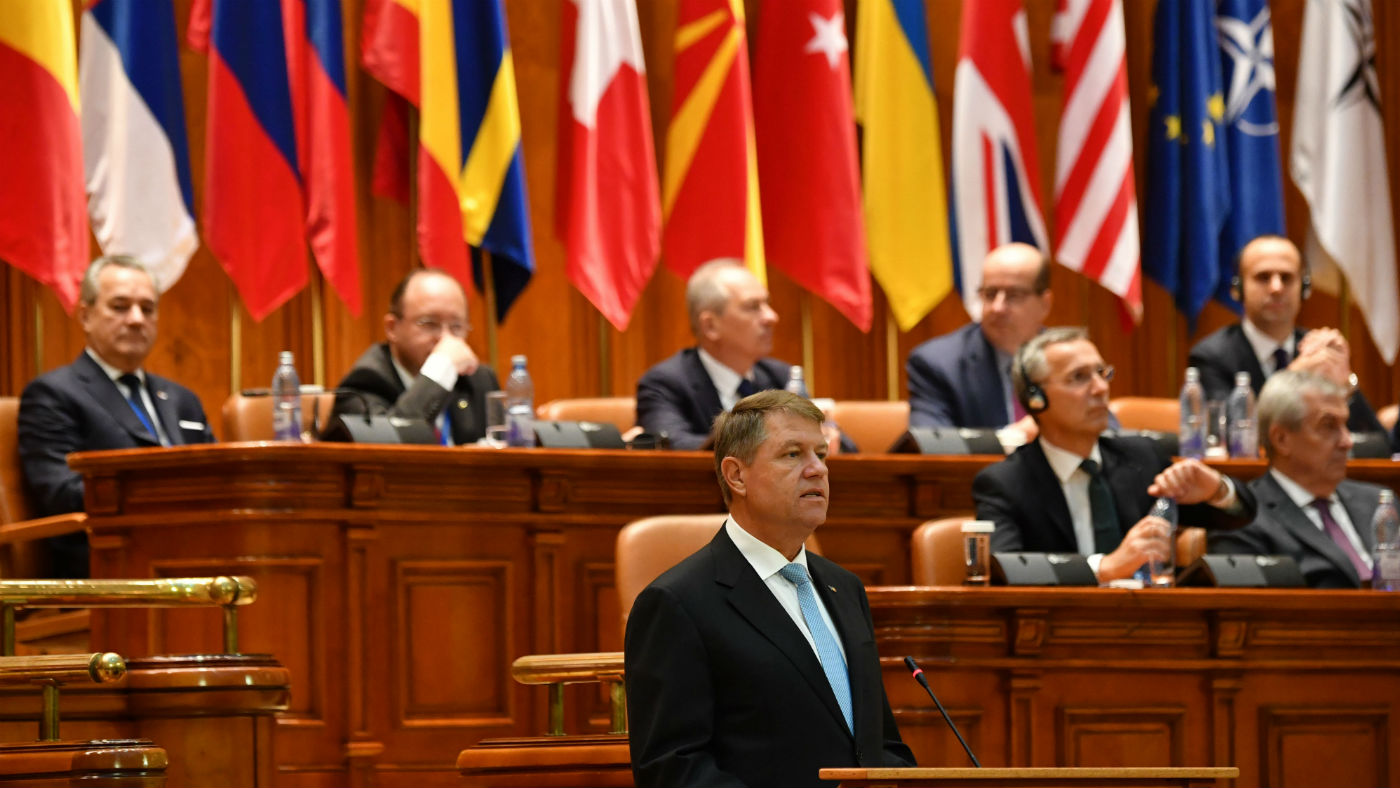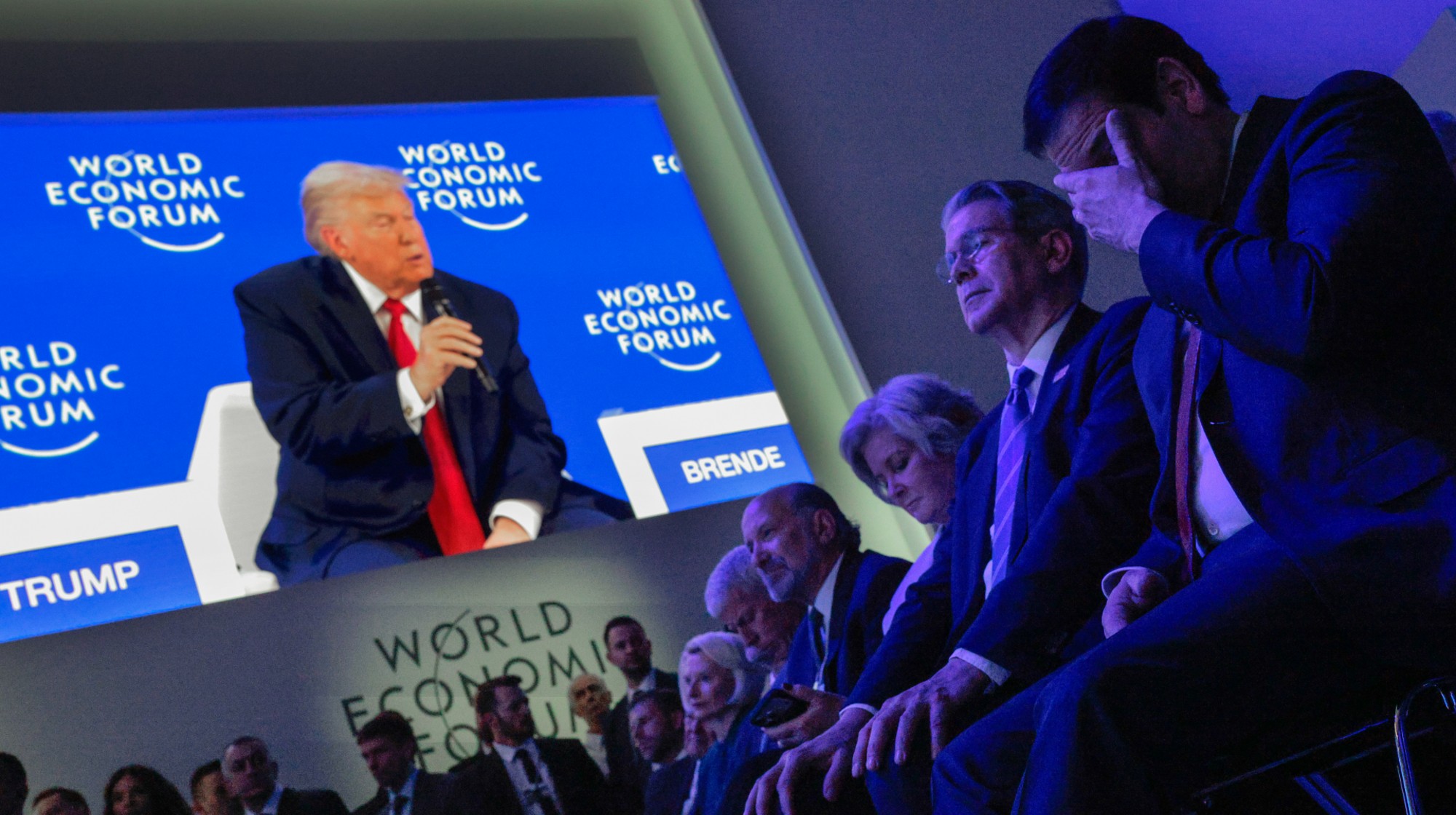Nato launches Black Sea force to counter Russian aggression
Aim of new Romanian-based troops is ‘peace, not war’ says President

A free daily email with the biggest news stories of the day – and the best features from TheWeek.com
You are now subscribed
Your newsletter sign-up was successful
Nato has launched a new multinational force based around the Black Sea as it looks to check the growing Russian presence in the region following the annexation of Crimea in 2014.
Based in Romania, the force will initially be made up of around 4,000 troops from 10 Nato counties including Italy, Canada, Germany and the US. British personnel are not expected to be included but the RAF is deploying fighter planes to patrol Romanian airspace alongside Canadian aircraft.
The news comes as Russia winds down its biggest war games in five years, named Zapad (meaning ‘West’), which showed off its latest weaponry and the country's ability to quickly deploy soldiers on Nato’s borders.
The Week
Escape your echo chamber. Get the facts behind the news, plus analysis from multiple perspectives.

Sign up for The Week's Free Newsletters
From our morning news briefing to a weekly Good News Newsletter, get the best of The Week delivered directly to your inbox.
From our morning news briefing to a weekly Good News Newsletter, get the best of The Week delivered directly to your inbox.
Addressing the Nato Parliamentary Assembly in Bucharest yesterday, Romanian President Klaus Iohannis stressed the purpose of the new force is “peace, not war”, adding: “We are not a threat for Russia. But we need dialogue from a strong position of defence and discouragement.”
Reuters claims the Nato force “aims to develop its allied presence in the Black Sea region, rich in oil and gas, without escalating tensions, as it seeks to counter Russia’s own plans to create what military analysts say is a ‘buffer zone’”.
Russia has repeatedly accused the alliance of trying to encircle it and threaten stability in Eastern Europe, especially after Nato expanded to include former Soviet satellite states such as Romania and Bulgaria.
During an inspection of troops yesterday, Nato Secretary-General Jens Stoltenberg said the new force “sends a signal of Nato’s resolve”, adding that Nato also has a 40,000-strong response force in case of a conflict with Russia.
A free daily email with the biggest news stories of the day – and the best features from TheWeek.com
-
 The ‘ravenous’ demand for Cornish minerals
The ‘ravenous’ demand for Cornish mineralsUnder the Radar Growing need for critical minerals to power tech has intensified ‘appetite’ for lithium, which could be a ‘huge boon’ for local economy
-
 Why are election experts taking Trump’s midterm threats seriously?
Why are election experts taking Trump’s midterm threats seriously?IN THE SPOTLIGHT As the president muses about polling place deployments and a centralized electoral system aimed at one-party control, lawmakers are taking this administration at its word
-
 ‘Restaurateurs have become millionaires’
‘Restaurateurs have become millionaires’Instant Opinion Opinion, comment and editorials of the day
-
 Epstein files topple law CEO, roil UK government
Epstein files topple law CEO, roil UK governmentSpeed Read Peter Mandelson, Britain’s former ambassador to the US, is caught up in the scandal
-
 Iran and US prepare to meet after skirmishes
Iran and US prepare to meet after skirmishesSpeed Read The incident comes amid heightened tensions in the Middle East
-
 Israel retrieves final hostage’s body from Gaza
Israel retrieves final hostage’s body from GazaSpeed Read The 24-year-old police officer was killed during the initial Hamas attack
-
 China’s Xi targets top general in growing purge
China’s Xi targets top general in growing purgeSpeed Read Zhang Youxia is being investigated over ‘grave violations’ of the law
-
 Panama and Canada are negotiating over a crucial copper mine
Panama and Canada are negotiating over a crucial copper mineIn the Spotlight Panama is set to make a final decision on the mine this summer
-
 Trump backs off Greenland threats, declares ‘deal’
Trump backs off Greenland threats, declares ‘deal’Speed Read Trump and NATO have ‘formed the framework for a future deal,’ the president claimed
-
 Why Greenland’s natural resources are nearly impossible to mine
Why Greenland’s natural resources are nearly impossible to mineThe Explainer The country’s natural landscape makes the task extremely difficult
-
 Iran cuts internet as protests escalate
Iran cuts internet as protests escalateSpeed Reada Government buildings across the country have been set on fire